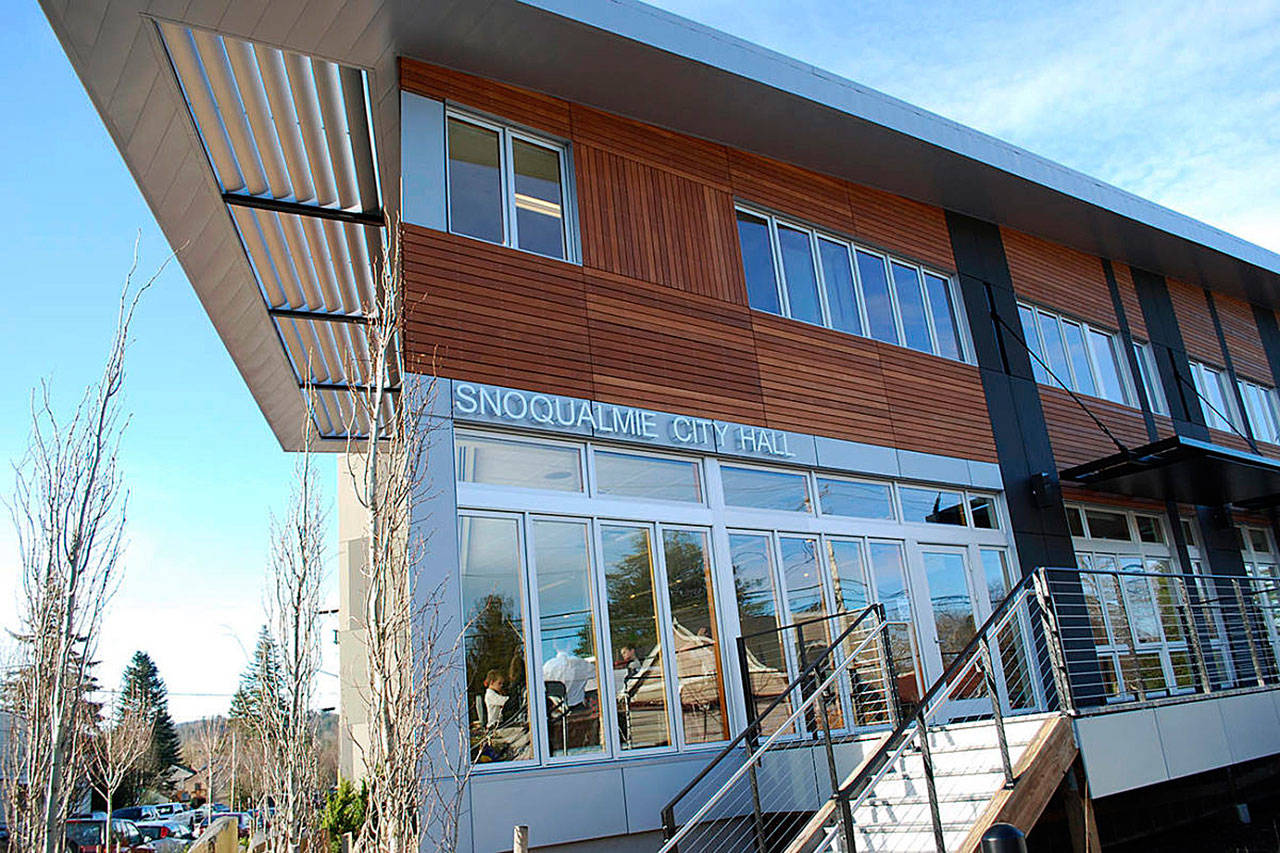The Snoqualmie City Council, at its Sept. 9 meeting, rejected the proposed King County 2019 Comprehensive Solid Waste Management Plan, wanting to explore options outside of continuing to fill landfills.
The council also authorized Mayor Matt Larson to send a letter to the county addressing concerns with the plan’s evaluation of non-landfill solid waste disposal options, such as the possibility of building Waste to Energy (WTE) facility — which generate energy from the treatment of waste or processing waste into a fuel source.
Initially, the motion on the agenda had been to waive the regular requirement for a second reading of the plan in order to adopt it by the county’s deadline for compliance and send a letter of concerns. But during discussion at the meeting, that motion was amended to instead reject the plan.
The motion, as amended, was approved 5 to 2 with councilmembers Bryan Holloway and Peggy Shepard dissenting.
A draft of that letter stated, “While we see value in the 2019 Solid Waste Plan update, the city is disappointed at the brief summary and dismissal of [WTE] in the plan as a viable future solution. […] The plan only summarized the full-sized future facility option of the two originally assessed by consultants in 2017, and then dismissed that option based partially on facility size, siting risks, [greenhouse gases (GHGs)], and potential rail transport constraints. The city finds that WTE capacity implications, alternative solutions, and GHG scenarios explored thus far warrant additional study rather than casual dismissal.”
Several councilmembers expressed not wanting to extend the lives of landfills, as proposed in the plan, or to put off adopting non-landfill waste management solutions.
Instead, they want to further explore building a WTE power plant and using the Cedar Hills Regional Landfill to deposit residual solid waste and ash, which King County Councilmember Kathy Lambert has been advocating for, among other options.
Councilmember Sean Sundwall said the county’s plan, as proposed, “further kicks the can down the road on getting serious about WTE rather than continually filling the landfills.”
Larson said a major concern with the county’s plan is that by “proposing to extend the life of the landfill, you may very well end up taking up land that would be needed for a WTE facility.”
Councilmember James Mayhew said he felt a strong need to pursue WTE technology instead of landfills.
“I think WTE is incredibly important. Stop continuing to just fill landfills higher and higher, bigger and bigger, ship them by rail. I think we’re going to have to face the fact that this is not the future for us,” Mayhew said. “The more pressure we put on the county to find a different and better solution, I think the wiser we are, and we’re going to have to solve this sooner or later, so let’s solve it now, let’s put that pressure on now.”
According to state law the county needs to have 75 percent of its cities’ populations accept its plan in order to proceed with the plan. The county already had the necessary amount of cities in agreement in order to move forward, so Snoqualmie’s rejection of the plan does not impact the county’s action.
Sundwall said that, although the county will move forward regardless of Snoqualmie’s decision, he thought there was a great opportunity.
“I think we have an opportunity, as small as we are, to take a leadership role on pushing forward,” he said. “I think a ‘No’ vote on this and (the mayor’s) letter sends a pretty significant message.”
Councilmember Matthew Laase said he strongly supported rejecting the proposed plan in order to say that Snoqualmie does not support procrastinating on the issues of waste and energy.
“I think we’re stuck in the dark ages and we continue to look at methods in which we are going to address our overpopulation through archaic means. People need to open their eyes and start paying attention,” he said.
Councilmember Peggy Shepard brought up concerns that council needed more time to deliberate over costs and emissions analysis. She said she felt overall the council needed more information and due process before making any decisions.
Larson said more information on costs and carbon emissions is coming soon.


